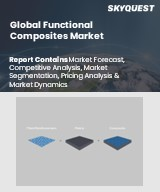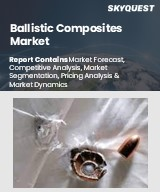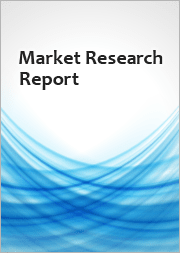
|
시장보고서
상품코드
1771348
금속 매트릭스 복합재료(MMC) 시장 수요 및 예측 분석(2018-2034년)Global Metal Matrix Composites Market Demand & Forecast Analysis, 2018-2034 |
||||||
금속 매트릭스 복합재료(MMC)는 금속을 세라믹이나 섬유와 같은 다른 강화 재료와 결합하여 만든 재료입니다. 이러한 조합은 금속의 기계적, 열적, 화학적 특성을 향상시켜 강도, 내열성, 내구성이 강화된 재료를 필요로 하는 산업에서 MMC의 가치가 매우 높습니다. 세계 금속 매트릭스 복합재료(MMC) 시장은 제조업체들이 최신 용도의 요구를 충족시키기 위해 더 강하고 가벼운 재료를 요구함에 따라 확대되고 있습니다.
금속계 복합재료(MMC) 수요: 유형별
알루미늄 기반 복합재료는 알루미늄의 경량성, 우수한 강도 대 중량비, 내식성으로 인해 우위를 점하고 있습니다. 이러한 특성으로 인해 알루미늄 MMC는 경량화가 중요한 자동차 및 항공우주 분야에 적합합니다. 니켈 기반 복합재료는 뛰어난 강도와 고온 내성으로 인해 에너지, 항공우주, 방위산업 분야의 까다로운 용도에 적합합니다. 마그네슘 복합재료는 흔하지는 않지만, 매우 가볍고 기계적 특성이 우수하여 특히 자동차 및 전자 분야에서 관심을 받고 있습니다. 티타늄이나 구리와 같은 다른 금속도 특정 용도에 맞는 MMC 제조에 사용되어 강도, 전도성 및 저항의 고유한 조합을 제공합니다.
지역 고찰
아시아태평양은 급속한 산업화, 자동차 생산의 확대, 항공우주 제조의 성장으로 인해 중요한 성장 허브로 부상하고 있습니다. 중국, 일본, 한국, 인도 등의 국가들은 성장하는 운송 및 에너지 부문을 지원하기 위해 MMC 기술에 투자하고 있습니다. 또한, 경량 소재와 첨단 제조를 촉진하기 위한 정부의 이니셔티브도 이 지역 시장 확대에 기여하고 있습니다.
시장 주요 기업
MMC의 개발 및 공급을 촉진하는 주요 기업으로는 Materion Corporation,3M,3M,CPS Technologies Corporation,Metal Matrix Cast Composites,GKN Powder Metallurgy,Deutsche Edelstahlwerke 등이 있습니다. 이들 기업은 기술 혁신, 생산 기술 향상, 제품 포트폴리오 확장에 주력하여 진화하는 고객 수요에 대응하고 있습니다.
시장 성장 촉진요인 : 운송 산업 수요 증가
금속 매트릭스 복합재료(MMC) 시장의 성장 촉진요인 중 하나는 자동차 및 항공우주 부문의 경량화 및 고강도 소재에 대한 수요 증가입니다. 이러한 복합재료는 구조적 성능을 유지하거나 향상시키면서 전체 무게를 줄여 자동차 및 항공기의 연비 개선과 내구성 향상에 기여합니다. 각국 정부가 엄격한 배기가스 및 연비 기준을 도입함에 따라, 제조업체들은 연료 소비와 오염물질 배출이 적은 경량 자동차 및 항공기를 생산하기 위해 MMC에 주목하고 있습니다.
또 다른 요인은 고온, 심한 마모, 부식 등 극한의 조건을 견딜 수 있는 소재에 대한 요구가 증가하고 있으며, MMC는 기존 금속에 비해 열 안정성과 강도가 뛰어나 에너지, 산업기계, 방위산업 분야에 이상적입니다. 이러한 성능 향상은 가혹한 사용 조건에서 내구성이 요구되는 부문에서 MMC의 가능성을 열어줍니다.
시장 성장 억제요인: 높은 비용
이러한 장점에도 불구하고, 금속 매트릭스 복합재료(MMC) 시장은 제조 비용과 복잡성에 대한 문제에 직면해 있으며, MMC 제조는 일반적으로 분말 야금 및 보강재 주조와 같은 정교한 가공이 필요하기 때문에 비용이 많이 들고 시간이 오래 걸립니다. 이러한 높은 생산 비용으로 인해 MMC는 가격 중심적인 응용 분야나 소규모 생산에 제한적으로 사용됩니다.
세계의 금속계 복합재료(MMC) 시장에 대해 조사 분석했으며, 시장 역학 및 산업 동향, 각 부문별 수요, 제조업체 프로파일 등의 정보를 전해드립니다.
목차
제1장 서론
제2장 시장 요약
- 시장 발전
- 수요 개요
- 산업 구조
- 전략상 문제
- 최종 용도 동향
- 성장 예측
제3장 경제와 에너지 전망
- GDP와 인구통계
- 금융정책과 재정정책
- 원유 생산과 가격
- 천연가스
- 전기요금
제4장 최종 용도 부문 실적
- 산업
- 전기 및 전자
- 항공우주 및 방위
- 자동차
- 에너지 및 전력
- 기타
제5장 금속 매트릭스 복합재료(MMC) 서론과 시장 개요
- 제품 설명
- 등급과 특성
- 원재료
- 제조 공정
- 환경 문제
- 밸류체인
- 용도
제6장 시장 역학과 산업 동향
- 시장 역학
- 성장 촉진요인
- 성장 억제요인
- 기회
- 과제
제7장 세계의 금속 매트릭스 복합재료(MMC) 수요 분석 : 유형별, 용도별(수량과 금액)(2018년-2034년)
- 전략상 문제와 COVID-19의 영향
- 수요 분석과 예측(2018년-2034년)
- 수요
- 수요 성장률
- 성장 촉진요인 분석
- 세계의 금속 매트릭스 복합재료(MMC) 시장 : 유형별
- 알루미늄
- 니켈
- 마그네슘
- 기타
- 세계의 금속 매트릭스 복합재료(MMC) 시장 : 용도별
- 산업
- 전기 및 전자
- 항공우주 및 방위
- 자동차
- 에너지 및 전력
- 기타
제8장 수요 분석과 시장 리뷰 : 지역/국가별(수량과 금액)(2018년-2034년)
- 전략상 문제와 COVID-19의 영향
- 수요 분석과 예측(2018년-2034년)
- 수요
- 수요 성장률
- 금속 매트릭스 복합재료(MMC) 시장 : 유형별
- 금속 매트릭스 복합재료(MMC) 시장 : 용도별
- 북미
- 미국
- 캐나다
- 멕시코
- 서유럽
- 독일
- 프랑스
- 이탈리아
- 영국
- 스페인
- 기타 서유럽
- 중유럽 및 동유럽
- 러시아
- 폴란드
- 기타 중유럽 및 동유럽
- 아시아태평양
- 중국
- 일본
- 인도
- 한국
- 기타 아시아태평양
- 중남미
- 중동 및 아프리카
제9장 가격 분석
제10장 주요 전략상 문제와 사업 기회 평가
- 시장의 매력 평가
- 전망과 타겟 시장 조사
제11장 전략적 추천과 제안
제12장 기업 분석
- 금속 매트릭스 복합재료(MMC) 제조업체 개요/기업 분석
- 기본 상세
- 본사 및 주요 시장
- 소유
- 기업 재무
- 제조거점
- 세계의 판매
- 총 직원수
- 제품 포트폴리오/서비스/솔루션
- 채택된 주요 사업 전략과 Prismane Consulting 개요
- 최근 발전
- 대상 기업
- Materion Corporation
- 3M
- CPS Technologies Corporation
- Metal Matrix Cast Composites
- GKN Powder Metallurgy
- Deutsche Edelstahlwerke
- 기타 제조업체
제13장 부록
LSH 25.07.22Metal Matrix Composites (MMCs) are materials made by combining metal with other reinforcing materials such as ceramics or fibers. This combination improves the metal's mechanical, thermal, and chemical properties, making MMCs highly valuable in industries that require materials with enhanced strength, heat resistance, and durability. The global Metal Matrix Composites market is expanding as manufacturers seek stronger and lighter materials to meet the needs of modern applications.
Metal Matrix Composites demand, by Type
Aluminum-based composites dominate due to aluminum's light weight, excellent strength-to-weight ratio, and corrosion resistance. These characteristics make aluminum MMCs ideal for automotive and aerospace applications where reducing weight is critical. Nickel-based composites are highly valued for their exceptional strength and resistance to high temperatures, making them ideal for demanding applications in the energy, aerospace, and defense industries. Magnesium composites, although less common, are gaining interest due to their extremely light weight and good mechanical properties, especially in automotive and electronics fields. Other metals like titanium and copper are also used to make MMCs tailored to specific applications, offering unique combinations of strength, conductivity, and resistance.
Metal Matrix Composites demand, by Application
MMCs find applications across a wide range of industries. The industrial sector uses MMCs in machinery components and tooling to improve durability and lifespan. In electrical and electronics, MMCs help create heat sinks and components that require efficient thermal management and electrical conductivity. Aerospace and defense industries heavily rely on MMCs for aircraft parts, missile components, and defense equipment because these composites provide high strength while reducing overall weight. Automotive manufacturers use MMCs to enhance vehicle performance and fuel efficiency by replacing heavier materials with lighter, stronger composites in engine parts, brakes, and chassis components. The energy and power sector applies MMCs in turbines, power generation equipment, and oil and gas machinery, benefiting from their thermal resistance and strength.
Regional Insights
The Asia Pacific region is emerging as a significant growth hub due to rapid industrialization, expanding automotive production, and growing aerospace manufacturing. Countries like China, Japan, South Korea, and India are investing in MMC technologies to support their growing transportation and energy sectors. Government initiatives promoting lightweight materials and advanced manufacturing also contribute to market expansion in this region.
Key Companies in the Market
Important companies driving the development and supply of MMCs include Materion Corporation, 3M, CPS Technologies Corporation, Metal Matrix Cast Composites, GKN Powder Metallurgy, and Deutsche Edelstahlwerke. These companies focus on innovation, improving production techniques, and expanding product portfolios to meet evolving customer demands.
Market Drivers: Rising demand from the transportation industry
One key driver propelling growth in the Metal Matrix Composites (MMC) market is the rising demand for lightweight, high-strength materials in the automotive and aerospace sectors. These composites help reduce overall weight while maintaining or enhancing structural performance, contributing to better fuel efficiency and improved durability in vehicles and aircrafts. As governments implement stricter emission and fuel efficiency standards worldwide, manufacturers are turning to MMCs to build lighter vehicles and aircraft that consume less fuel and emit fewer pollutants.
Another key factor is the rising need for materials that can withstand extreme conditions such as high temperatures, heavy wear, and corrosion. MMCs offer superior thermal stability and strength compared to traditional metals, making them ideal for energy, industrial machinery, and defense applications. This increased performance capability opens doors for MMCs in sectors requiring durability under harsh operating conditions.
Market Restraints: Expensive Costs
Despite the advantages, the Metal Matrix Composites market faces challenges related to production costs and complexity. Manufacturing MMCs typically involves sophisticated processes such as powder metallurgy or casting with reinforcements, which can be expensive and time-consuming. These high production costs limit the use of MMCs in price-sensitive applications and small-scale production.
Table of Contents
1. Introduction
- Scope
- Market Coverage
- Types
- Applications
- Regions
- Countries
- Years Considered
- Historical - 2018 - 2023
- Base - 2024
- Forecast Period - 2025 - 2034
- Research Methodology
- Approach
- Research Methodology
- Prismane Consulting Market Models
- Assumptions & Limitations
- Abbreviations & Definitions
- Conversion Factors
- Data Sources
2. Market Synopsis
- Market Evolution
- Demand Overview
- Industry Structure
- Strategic Issues
- End-use Trends
- Growth Forecast
3. Economic & Energy Outlook
- GDP and Demographics
- Monetary & Fiscal Policies
- Crude Oil Production and prices
- Natural Gas
- Electricity Prices
4. End-use Sector Performance
- Industrial
- Electrical & Electronics
- Aerospace & Defense
- Automotive
- Energy & Power
- Others
5. Introduction to Metal Matrix Composites and Market Overview
- Product Description
- Grades & Properties
- Raw Material
- Manufacturing Process
- Environmental Issues
- Value Chain
- Applications
6. Market Dynamics and Industry Trends
- Market Dynamics
- Drivers
- Restraints
- Opportunities
- Challenges
7. Global Metal Matrix Composites Demand Analysis, By Types, By Applications (Volume, Value) (2018-2034)
- Strategic Issues and COVID-19 Impact
- Demand Analysis and Forecast (2018- 2034)
- Demand
- Demand Growth Rate (%)
- Driving Force Analysis
- Global Metal Matrix Composites Market, By Types
- Aluminium
- Nickel
- Magnesium
- Others
- Global Metal Matrix Composites Market, By Applications
- Industrial
- Electrical & Electronics
- Aerospace & Defense
- Automotive
- Energy & Power
- Others
8. Demand Analysis and Market Review, By Region, By Country (Volume, Value), (2018- 2034)
- Strategic Issues and COVID-19 Impact
- Demand Analysis and Forecast (2018- 2034)
- Demand
- Demand Growth Rate (%)
- Metal Matrix Composites Market, By Types
- Metal Matrix Composites Market, By Applications
Note: Demand Analysis has been provided for all major Regions / Countries as mentioned below. The demand (consumption) split by types and applications have been provided for each of the countries / regions in Volume (Kilo tons) and Value (USD Million).
- North America
- USA
- Canada
- Mexico
- Western Europe
- Germany
- France
- Italy
- United Kingdom
- Spain
- Rest of Western Europe
- Central & Eastern Europe
- Russia
- Poland
- Rest of Central & Eastern Europe
- Asia-Pacific
- China
- Japan
- India
- South Korea
- Rest of Asia-Pacific
- Central & South America
- Middle East & Africa
Note: CAGR will be calculated for all types and applications to arrive at the regional / global demand growth for the forecast period (2025 - 2034)
9. Pricing Analysis
10. Key Strategic Issues and Business Opportunity Assessment
- Market Attractiveness Assessment
- Prospective & Target Market Study
11. Strategic Recommendation & Suggestions
12. Company Analysis
- Metal Matrix Composites Manufacturers Profiles/ Company Analysis
- Basic Details
- Headquarter, Key Markets
- Ownership
- Company Financial
- Manufacturing Bases
- Global Turnover
- Total Employee
- Product Portfolio / Services / Solutions
- Key Business Strategies adopted and Prismane Consulting Overview
- Recent Developments
- Companies Covered -
- Materion Corporation
- 3M
- CPS Technologies Corporation
- Metal Matrix Cast Composites
- GKN Powder Metallurgy
- Deutsche Edelstahlwerke
- Other Manufacturers
Note: This section includes company information, company financials, manufacturing bases and operating regions. Company financials have been mentioned only for those companies where financials were available in SEC Filings, annual reports, or company websites. All the reported financials in this report are in U.S. Dollars. Financials reported in other currencies have been converted using average currency conversion rates. Company profiles may include manufacturers, suppliers, and distributors.
13. Appendices
- Demand - Regions
- Demand - Countries



















